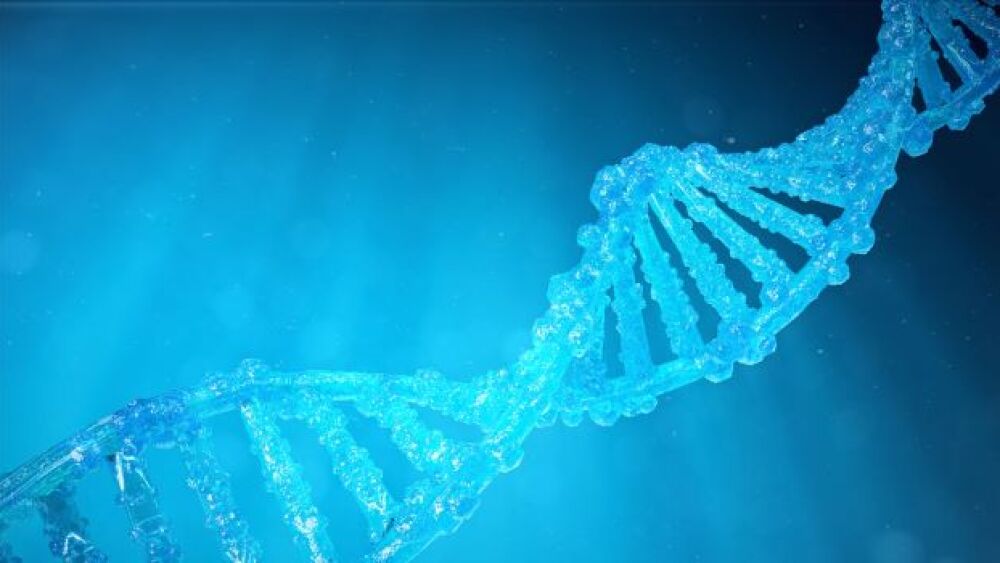The 24th Annual meeting of the American Society of Gene & Cell Therapy presents cutting-edge work in the booming area of gene and cell therapy. Here’s a look at a few of the highlights.
The 24th Annual meeting of the American Society of Gene & Cell Therapy is ongoing, with researchers presenting cutting-edge work in the booming area of gene and cell therapy. Here’s a look at a few of the highlights.
Voyager’s Gene Therapy Delivery Tech Effective in CNS Studies in Non-Human Primates
Voyager Therapeutics, based in Cambridge, Mass., presented preclinical data on its novel adeno-associated virus (AAV) capsids in the central nervous system (CNS) after intravenous dosing in non-human primates. A subset of their capsids demonstrated a 10-fold or higher improvement in the transduction of the brain and spinal cord, compared to AAV9, and the most efficient one, TRACER 9P801, showed more than 1,000-fold of transgene expression in the brain and 100-fold higher transgene expression in the spinal cord.
“Efficient targeting of the CNS, including the ability to penetrate the blood brain barrier and transduce target cells, have represented a significant challenge in gene therapy hindering the field’s ability to effectively address many serious neurological diseases,” said Omar Khwaja, chief medical officer and head of Research & Development at Voyager. “We’ve now been able to show that our novel capsid variants not only cross the blood brain barrier but achieve widespread transduction of multiple brain regions including the cortex, thalamus, striatum, cerebellum, brainstem and spinal cord. We believe these capsids can provide a new way forward to treat a broad range of CNS indications, potentially at significantly lower doses than currently available AAV serotypes.”
Catamaran’s Transposon Tech for Non-Viral Engineering of CAR-NK Cells
Another Cambridge company, Catamaran Bio, presented results from its advanced transposon technology for non-viral engineering of CAR-NK cells. The data supported high-efficiency transposon integration in primary NK cells, followed by cell expansion and in vitro activity of the resulting CAR-NK cells.
“We congratulate our collaborators at the University of Minnesota for this landmark presentation, which provides the first demonstration that this transposon technology efficiently generates active CAR-NK cells and offers potential advantages compared to viral vectors in the manufacture of CAR-NK cells,” said Vipin Suri, chief scientific officer of Catamaran. “This novel transposon technology demonstrates important capabilities for improved manufacturability, which will be essential in developing safe and effective cell therapies for solid tumors.”
Poseida’s piggyBac DNA Delivery System
San Diego-based Poseida Therapeutics presented multiple oral and poster presentations highlighting its proprietary piggyBac DNA Delivery System for the treatment of genetic liver disorders in children and infants. Two highlighted preclinical data of its first allogeneic CAR-T candidate, P-BCMA-ALL01, for relapsing or recurring (r/r) multiple myeloma. They also presented preclinical data on its anti-c-kit CAR-T program, potentially a safer preconditioning regimen for hematopoietic stem cell transplantation in patients with AML.
“At Poseida, we are applying our proprietary technology platforms to develop the next wave of cell and gene therapies to not only treat severe cancers but to also unlock the potential of single treatment cure,” said Eric Ostertag, Poseida’s chief executive officer. “The preclinical data being presented today further validate our CAR-T approach in multiple myeloma and in preconditioning for patients with AML, as well as demonstrate the exciting potential of our liver directed gene therapies, particularly in juvenile patients.”
Freeline’s Gene Therapy Platform Across a Range of Approaches
London-based Freeline Therapeutics Holdings presented six posters about its gene therapy platform. This included a 96-well high-throughput suspension platform for rAAV manufacturing and candidate screening, the scale up of suspension cell-based AAV manufacturing, a dosing assay strategy for AAV-based gene therapies, a universally applicable transducing titer assay for AAV-based gene therapies, and the company’s FLT190 for Fabry disease and FLT201, its gene therapy for Gaucher disease Type 1.
“These data presented today at ASGCT highlight the strong scientific foundation that underlies our gene therapy programs and broader technology platform,” said Theresa Heggie, Freeline’s chief executive officer. “Collectively, these posters demonstrate our potential to innovate across capsid, protein engineering, transduction efficiency, analytics and manufacturing, with the goal of delivering better gene therapy products for patients.”
Akouos’ Gene Therapies for Hearing Loss and Vestibular Schwannoma
Boston-based Akouos presented nonclinical data in support of clinical development of two of its gene therapies, AK-OTOF, for the treatment of otoferlin gene (OTOF)-mediated hearing loss, and AK-antiVEGF for vestibular schwannoma. The first is hearing loss caused by mutations in the OTOF gene and marked by congenital, Severe to Profound sensorineural hearing loss. Vestibular schwannoma is a benign, typically slow-growing tumor that develops from the balance and hearing nerves supplying the inner ear.
“We are excited to share new data that highlight the potential of genetic medicines for inner ear conditions with the broader gene therapy community,” said Manny Simons, co-founder, president and chief executive officer of Akouos. “Inner ear conditions represent one of the largest areas of unmet need in medicine today, and one of the challenges in this area is the ability to efficiently address the broad range of conditions that collectively affect hundreds of millions of individuals worldwide.”





